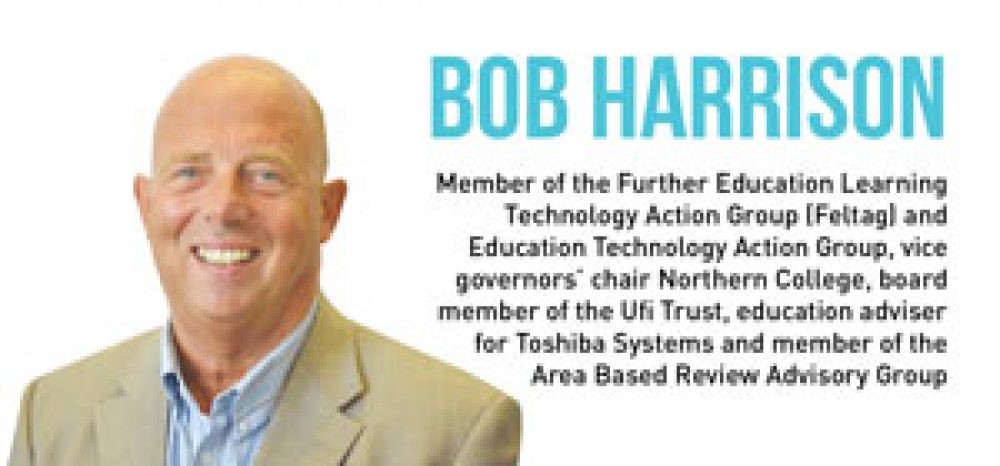Bob Harrison reflects on the first meeting of the Further Education Technology Action Group
Matthew Hancock’s inaugural gathering of some key people in the worlds of FE and technology was all about action.
More than 20 strong, the membership is an interesting mix of public and private sector providers as well as the usual representatives from colleges, agencies, examination bodies and membership organisations.
The FE minister has a personal interest, stemming partly from his family business interests, which are technology based, his own personal use of social media (he has more than 7,000 followers on Twitter) and his recent visit to India where he was investigating distance and open learning and the growth of MOOCs.
He has set the group the task of advising the government on the potential for emerging technologies to inspire innovations in learning.
He clearly is interested in how these can be harnessed to drive up the quality, efficiency, and accessibility of FE.
And he was in listening mode for the first meeting, willing to learn about best practice, and how the government could encourage and promote it.
One of the group’s key driving forces is co-chair Manoj Badale, the co-founder and managing partner of Blenheim Chalcot, an early stage investment group that manages a portfolio of fast growth ventures in technology, financial services or media.
He took over chairing the inaugural meeting when the minister had to leave to address a gathering of sixth-form college principals and made it clear that he wanted the group to produce outcomes and not just rehearse previous arguments.
Will the current analogue mindset and culture stifle the very impetus that Matthew Hancock is keen to create?”
The wide-ranging discussion covered all the new technologies relevant to teaching and learning, with an emerging consensus around some key barriers such as funding methodology, leadership and governance, workforce skills and Inspection.
Dick Palmer, chief executive of Norwich City College group and chair of the TEN group of colleges, was pleased with the first meeting. “There is a substantial appetite for the use of technology for learning in FE. Colleges are aware of the potential but there is confusion, anxiety and uncertainty around issues such as funding, assessment and qualifications,” he said.
Paul Rolfe, 157 group and Highbury College, was anxious to ensure the learner voice was heard. “There is a lot of expertise and skills within colleges in the student body and it is important that we tap into that,” he said.
The first challenge will be to see if there is the ministerial will to provide the “nudges” to the system that will encourage teachers to innovate and take risks using technology to improve learning. Or will the current analogue mindset and culture stifle the very impetus that Matthew Hancock is keen to create?
Time will tell.
Bob Harrison, education adviser for Toshiba Information Systems (UK) Ltd, consultant with National College for Leadership of Schools and Children’s Services
and chair of the Teaching Schools
Technology Advisory Board









Your thoughts